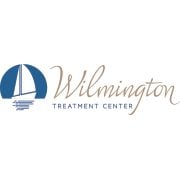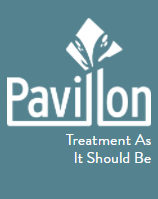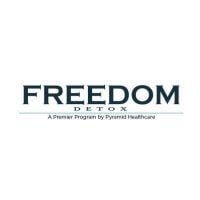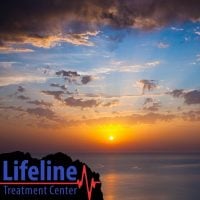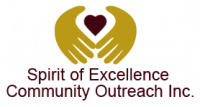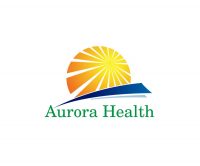Wilmington Treatment Center - Harbour Outpatient
Drug Rehab Center in Wilmington, North Carolina
Wilmington Treatment Center - Harbour Outpatient is a specialized mental health and addiction treatment facility in North Carolina that offers personalized treatment approaches, evidence-based therapies, and comprehensive education and prevention programs to help individuals overcome addiction and substance abuse in a safe, non-judgmental environment.
About This Wilmington, NC Facility
Wilmington Treatment Center - Harbour Outpatient in Wilmington, North Carolina is a leader in addiction treatment, providing life-changing care for adults struggling with substance abuse and co-occurring mental health disorders. The center offers intensive outpatient services in a supportive setting.
The facility focuses on treating individuals with alcohol and drug addictions, as well as those dealing with depression, anxiety, and other mental health issues.
Wilmington Treatment Center utilizes evidence-based therapies, substance abuse education, and peer support to help clients overcome addiction. They provide individualized treatment approaches and comprehensive aftercare planning. The center is accredited by JCAHO and holds a state license.
- Cognitive behavioral therapy helps clients identify and change negative thought patterns and behaviors
- Family therapy involves loved ones in the recovery process, strengthening support systems
- 12-step program facilitation encourages participation in community-based support groups
- Anger and stress management techniques are taught to promote healthy coping skills
North Carolina faces a significant opioid epidemic, with high rates of overdose deaths. Wilmington Treatment Center addresses this issue by providing specialized treatment for opioid addiction, including medication-assisted treatment and relapse prevention strategies.
Wilmington Treatment Center is ideal for adults who are committed to overcoming addiction and improving their mental health through comprehensive, evidence-based treatment approaches.
Genders
Ages
Modality
Additional
Accreditations
State License

JCAHO
Conditions and Issues Treated
Substance abuse refers to the intensive and inappropriate use of psychoactive substances. Psychoactive substances are those that affect brain function. These include illegal drugs, alcohol, and even the excessive use of prescription drugs. The overuse of psychoactive substances leads to severe physical or psychological dependence. It also affects the social life and relationships of the affected individual. Substance abuse is treatable.
The duration of treatment at Wilmington Treatment Center - Harbour Outpatient in Wilmington can require weeks or even months depending on the severity of the condition as there is a risk of relapse. Treatment options include medications, counseling sessions, various types of behavioral therapy, and group therapy in different combinations.
Addiction to prescription opioid painkillers like oxycodone and hydrocodone, and illicit opioids such as heroin, leads to potentially life-threatening withdrawal symptoms when discontinued. Opioid addiction treatment typically involves an inpatient stay at facilities like Wilmington Treatment Center - Harbour Outpatient to make sure they get through withdrawal safely. Treatment also includes comprehensive mental health counseling.
Conditions such as anxiety, depression, schizophrenia, bipolar disorder are part of mental illness. This may occur that opioid abuse and vice versa are induced by mental illness. Diagnosing a concurrent diagnosis or co-occurring condition at Wilmington Treatment Center - Harbour Outpatient is essential to understand the addiction better.
Levels of Care Offered
This center offers a variety of custom treatment tailored to individual recovery. Currently available are Aftercare Support, Detox, Drug Rehab, Dual-Diagnosis, Inpatient, Intensive Outpatient, Intervention, Outpatient, Partial-Hospitalization, with additional therapies available as listed below.
Detox is the primary substance abuse treatment administered to a patient suffering from drug addiction. Detox helps patients in Wilmington, NC recover from drug-addicted through regular monitoring of medical professionals and temporary utilization medication, other techniques.
If you or someone you know suffers from a substance abuse problem, it is crucial to understand the different options available for treatment and seek help as early as possible. These days, detox centers offer several methods for drug and alcohol addiction rehabilitation and treatment.
An intensive outpatient program is a good option for someone in North Carolina with a milder or less severe addiction. An IOP may involve daily meetings at a treatment facility, along with personal counseling and peer meetings. Some IOP programs offer half-day treatment, while others offer full-day programs. Wilmington Treatment Center - Harbour Outpatient‘s IOP is customized per individual.
Outpatient programs are the standard for addiction treatment. About 9 in 10 U.S. adolescents entering addiction treatment enroll in these programs, so you’re not alone in Wilmington, NC. Treatment is delivered in different settings – offices, clinics, and primary care clinics.
Facilities offer a variety of services, such as individual and group counseling and family therapy. During the sessions, you work with a team of experts that include: General physicians, Psychiatrists, Social Workers, and Psychologists. The main goals of outpatient recovery programs are to help addicted individuals reduce drug use and addictive behaviors, eventually becoming entirely sober.
Partial hospitalization (PHP) is a type of outpatient addiction care. Each plan is tailored to meet unique individual needs. Treatment is more intense than that you receive at a therapist’s office. It is less intense than inpatient rehab. The entire treatment takes about ten days to complete. It does not require you to stay at the North Carolina treatment center. Each visit lasts several hours, sometimes, eight hours. It can be the best choice for those who have recently developed an addiction.
An intervention is a planned conversation between an addicted person and their loved ones. Usually, a licensed alcohol and drug counselor or an interventionist supervises the conversation. The presence of a specialist is essential if your loved one has a history of a severe mental disorder, suicidal attempts, abusing mood-altering drugs. A proper intervention is an excellent bridge to an individual’s sobriety.
Aftercare comprises services that help recovering addicts readjust to normal day-to-day North Carolina activities. It can last a year or even longer. Services include individual and family counseling, medications to reduce cravings, and treatment of psychiatric and other medical conditions. Aftercare support begins once you have completed earlier stages of treatment.
Wilmington Treatment Center - Harbour Outpatient‘s Therapies & Programs
In addiction recovery at Wilmington Treatment Center - Harbour Outpatient, therapy plays a significant role. This helps patients get to the root of their addiction and discover how the problems that contributed to their use can be handled better. Therapy can be performed in a group and one on one settings. The patient interacts with the therapist in a one-on-one atmosphere during individual therapy. This encourages them to reflect on the underlying addiction problems and develop ways to avoid potential future abuse.
Addiction and alcoholism affect the entire family. For this reason, family therapy is vital to a person’s recovery from addiction. In contrast to couples counseling, family therapy at Wilmington Treatment Center - Harbour Outpatient may include siblings, children, parents, and other significant people in the recovering person’s life. Family support is one of the most important pillars of recovery.
Many people turn to drugs and alcohol as a way of processing trauma that has affected them in the past. Trauma can include abuse, neglect, the loss of a loved one and other unpleasant incidents. Trauma therapy at Wilmington Treatment Center - Harbour Outpatient helps patients process trauma. It gives them the tools to deal with it in a healthier manner.
Cognitive Behavioral Therapy (CBT) examines the relationship between a patient’s thoughts, feelings and behaviors. Wilmington Treatment Center - Harbour Outpatient aims to establish a healthy response to thoughts and feelings as an alternative to turning to drugs and alcohol. It also promotes healthy communication between addicts and those around them. It is and effective therapy for people suffering with all types of addictions.
EMDR therapy is combined with behavioral therapies to address the root cause of the problem. The rapid eye movements reduce the patients’ negative feelings related to the trauma and promote calmness and relaxation.
Life skills pertain to the skill sets a person should possess to become successful in life. Examples are time management, budgeting, and social abilities. Life skills therapy highlights the fact that addiction recovery is more than just a person’s ability to go through their day-to-day without resorting to substance use in Wilmington, NC once they leave the facility.
The recovery technique used by Alcoholics Anonymous is the 12 step program, but it can relate to any form of addiction. The 12 steps that addicts must take on the road to recovery are explained. Measures include acknowledging that you have a problem and agreeing to turn around your life. The curriculum, instructed by Wilmington Treatment Center - Harbour Outpatient, also requires a belief in a greater power and making amends to others.
Payment Options Accepted
For specific insurance or payment methods please contact us.
Is your insurance accepted?
Ask an expert, call (888) 674-0062
Additional Details
Specifics, location, and helpful extra information.
Wilmington, North Carolina 28401 Phone Number(910) 758-2023 Meta DetailsUpdated April 15, 2024
Staff Verified
What else do people call Wilmington Treatment Center – Harbour Outpatient?
People have occasionally also searched for “Wilmington Treatment Center - Outpatient in North Carolina”
Patient Reviews
There are no reviews yet. Be the first one to write one.
Wilmington, North Carolina Addiction Information
North Carolina ranks 29th in the nation for overall substance abuse. Many of the drugs abused in the state are illicit, and many of these are opioids. Prescription opioids are readily available due to the high rates of medical workers prescribing them. The number of prescriptions has increased tenfold since the 1980's. Opioid overdoses are the most common type of death in North Carolina.
Wilmington, North Carolina has been hit hard by the drug addiction and abuse epidemic. Opioids were involved in 59% of overdose deaths in Wilmington in 2017. 9 percent of the population struggles with drug addiction. From 2012 to 2016, the number of emergency department visits due to heroin abuse increased by 537%. If you or someone you know is struggling with addiction, please don't hesitate to reach out for help.
Treatment in Nearby Cities
- Shelby, NC (218.9 mi.)
- Murphy, NC (353.2 mi.)
- Fuquay-Varina, NC (108.1 mi.)
- Banner Elk, NC (261.4 mi.)
- Gold Hill, NC (164.9 mi.)
Centers near Wilmington Treatment Center - Harbour Outpatient
The facility name, logo and brand are the property and registered trademarks of Wilmington Treatment Center - Harbour Outpatient, and are being used for identification and informational purposes only. Use of these names, logos and brands shall not imply endorsement. RehabNow.org is not affiliated with or sponsored by Wilmington Treatment Center - Harbour Outpatient.
